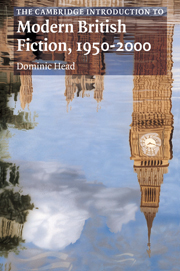Book contents
Chapter 2 - Class and Social Change
Published online by Cambridge University Press: 05 June 2012
Summary
It is often argued that the Second World War marked a watershed in British class relations. Obvious class distinctions were set aside in the face of a common crisis, and this pragmatism can be seen to have accelerated a process of change in the perception of class status. This is not to deny the existence of inequality, or the persistence of class struggle in the post-war era. What the change in perception instigated is a popular demand for a wider share in the new prosperity that emerged in the 1950s, after the years of austerity. If the egalitarian social reconstruction proposed during the war did not materialize, it is still true that the post-war Labour government enacted policies that ‘in general … favoured the working class’. The broad trend since then has been towards greater prosperity for working people, a process that undermines the economic basis of class affiliation. Despite this, however, class in British culture was (and remains) fraught with contradiction and confusion, especially where persistent class loyalties are shaken, or even rendered irrelevant, by social and economic change, and yet are not relinquished.
The shape of British politics, however, helped to consolidate a more simplistic understanding of the class struggle. In David Cannadine's reading, perceptions of class for ‘the Welfare State generation of 1945–79’ were governed by a presumed instrumental link between economic change and social change, and by the assumption that class conflict governed the key economic and social debates.
- Type
- Chapter
- Information
- Publisher: Cambridge University PressPrint publication year: 2002
- 1
- Cited by



